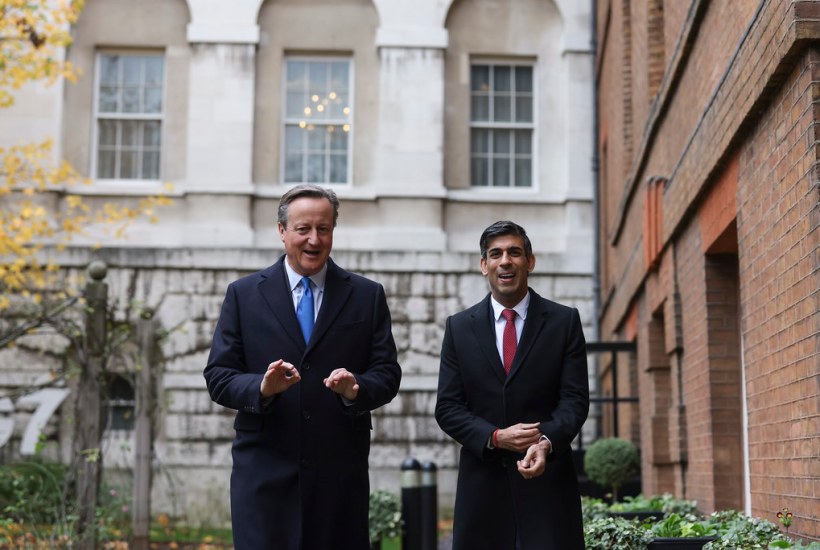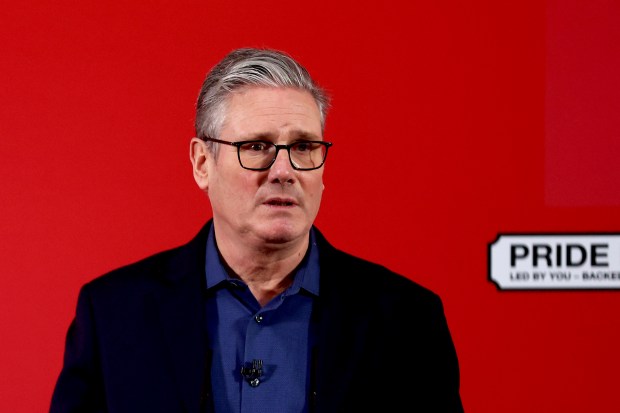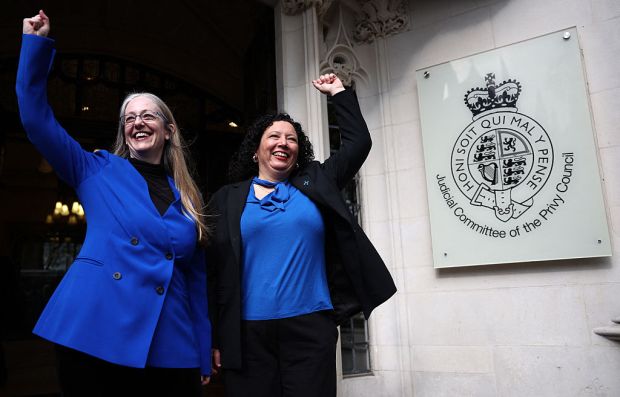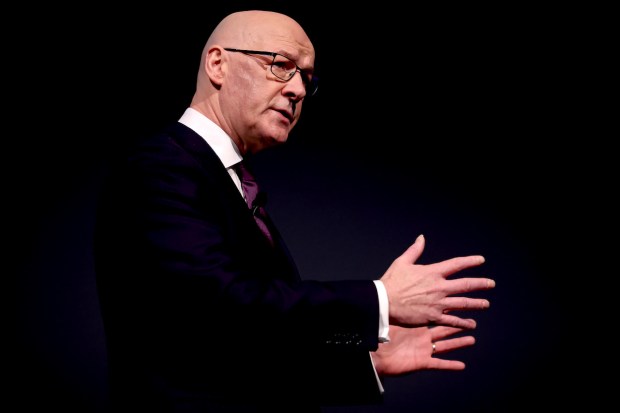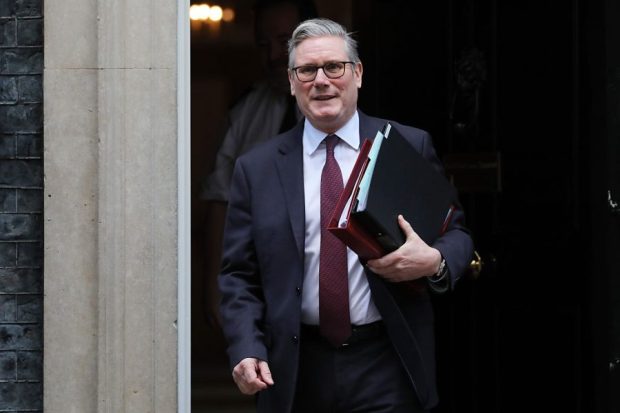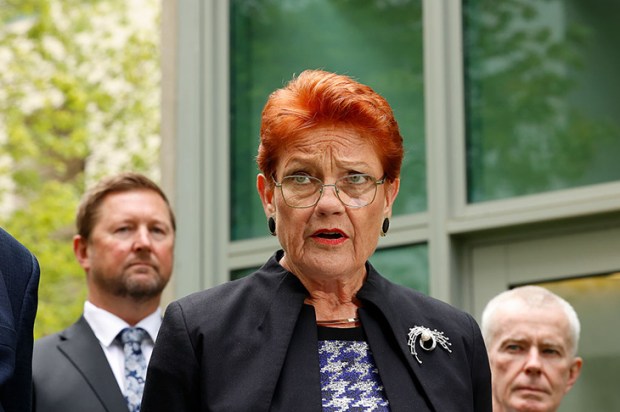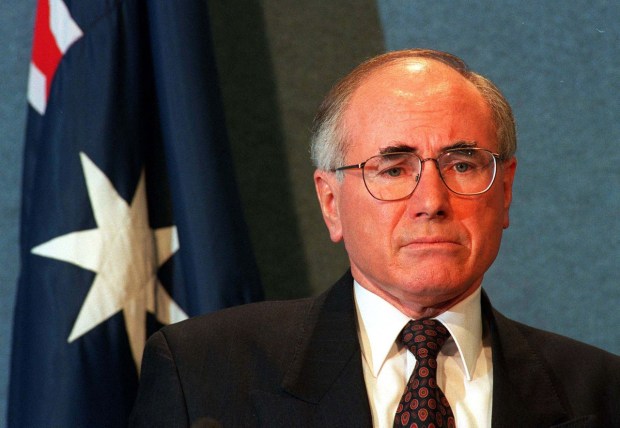There has been much Tory huffing and puffing about the ONS revising 2022 net migration to 745,000, up from its previous estimate of 606,000. James Heale has documented their dismay. Conservative MPs are a journalist’s dream: they don’t do much but they’re always quick off the mark with a statement lamenting all the things they’ve not done.
You will have read this story before. The Conservatives pledge to crack down on immigration, immigration goes up, and the Tories announce that they’re jolly cross about it. Boy, just you wait till they get into government. Oh how things will be different then.
Every election the Conservative party has won in the last 40 years it has done so on a manifesto promising controlled or reduced immigration. In 1983, it was a pledge to ‘maintain effective immigration control’; in 1987, ‘firm but fair immigration controls’; and in 1992, ‘immigration controls which are fair, understandable and properly enforced’.
Tory manifesto language had hardened significantly by 2010, when the manifesto drawn up by those nice Notting Hill Tories declared that immigration was ‘too high and needs to be reduced’. Reduced by how much? ‘Back to the levels of the 1990s – tens of thousands a year, not hundreds of thousands.’
Five years later, the Conservatives went to the country promising: ‘We will continue to cut immigration from outside the EU.’ In 2017, immigration was ‘still too high’ and would be reduced ‘to sustainable levels’, which was once again defined as ‘the tens of thousands, rather than the hundreds of thousands’.
Then came the 2019 election. Once Brexit was done, the Conservative manifesto announced, ‘we can decide who comes to this country’. That would mean: ‘There will be fewer lower-skilled migrants and overall numbers will come down.’
Narrator: overall numbers did not come down.
The revised figure means 2022 saw the highest level of annual net migration since 1964. (That’s as far back as I could find figures for.) As is now well-documented, increases in immigration no longer come predominantly from EU member states but from countries outside the bloc. In the year to June, 968,000 of the 1.2 million arrivals were from non-EU countries. That is before we factor in illegal immigration via small boats, another route of ingress the Tories have vowed to restrict. In the past five years, more than 112,000 people have entered the UK without permission via the Channel. Never fear, though. The ONS say this year’s figures show immigration trending downwards. With their last estimate being out by a mere 139,000, their analysis must be considered robust and reliable.
In election after election, Conservative votes have produced progressive outcomes on immigration. The Tories used to blame the EU but they no longer have that excuse. They used to blame Labour but immigration levels during the Blair and Brown years have nothing on the Conservatives. Yet immigration-restrictionist voters have turned out time and again for the Tories on election day.
The political scientist Eric Kaufmann suspects the reason is that these voters don’t yet appreciate the scale of mass immigration the Tories have presided over. That may be, though I wonder if it has more to do with demographics and ideological instincts. The demographic most likely to back immigration restrictions are also those least likely to be affected by the economic and social impacts, such as increased labour market competition, housing scarcity and demand for school places. The demographic most likely to encounter these impacts is also the most likely to have experienced educational, social and cultural settings where even scepticism towards mass immigration is framed as reactionary and racist.
I’m not sure how long the uneasy, undemocratic peace on this issue can or should endure
Put bluntly: boomers moan but don’t march while millennials might march but not on this. (There may also be, as I suggested recently, a Trumpian ‘build the wall’ phenomenon whereby boomer immigration restrictionists care more about hearing ‘crack down on immigration’ than they do about said crackdown materialising.)
Whatever the sociology behind it, the determination of immigration restrictionists to vote for a party that keeps increasing immigration all but guarantees that the party will continue its policy. That will mean more mass immigration, with all the social and cultural externalities that brings, and in turn greater difficulty in managing rapid population change and more resentment towards immigration of any scale.
The continued failure of the two main parties to address these issues is storing up political and social problems for the future, by which point addressing them will be far more difficult and divisive. There is little hope that a governing class that refused to learn this lesson even after Brexit will learn it in sufficient time to head off the sorts of outcomes that have boosted nationalists in some of Europe’s most stoutly liberal nations. The only saving grace in this country is that first past the post makes it excruciatingly difficult for a new party to unseat and replace either the Conservatives or Labour.
I am an immigration liberal. I don’t dispute that there is a minus column as well as a plus column, but I believe the latter totals more than the former. Even so, I’m not sure how long the uneasy, undemocratic peace on this issue can or should endure. Vote Labour, get uncontrolled immigration. Vote Conservative, get the same. The message coming out of Westminster is that it doesn’t matter how you vote, the policy will not change. This has all the makings of another Brexit.


